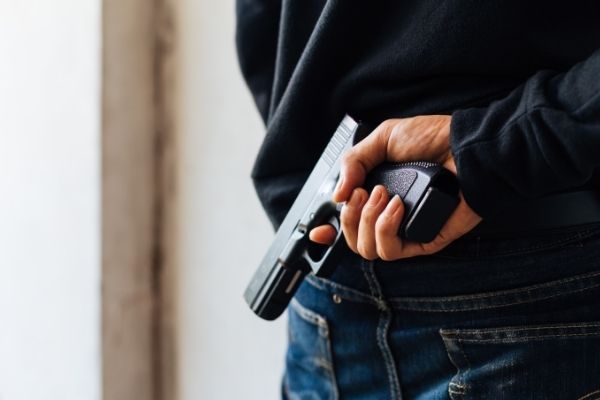The North Carolina Felony Firearms Act
In 2004, the NC Legislature banned all gun ownership by convicted felons. The North Carolina Felony Firearms Act makes it illegal for a convicted felon to purchase, own, or possess any firearm. This includes gun parts and silencers, but it does not extend to antique firearms, which are any firearm created before 1898.
Also, a person who was acquitted of a felony because of incompetence or insanity is not allowed to have a firearm. However, an individual convicted of a white-collar crime does not lose their right to have a gun, as a white-collar crime is not necessarily violent.
How to Restore Gun Rights
A North Carolina resident who was convicted of a nonviolent felony may restore the right to gun ownership. To do this, convicted felons must first restore their citizenship rights to regain the right to bear arms. This process involves asking a court to remove the restriction after twenty years following the restoration of citizenship rights.
If the felony did not occur in North Carolina, a person has to show that they have restored their citizenship rights and the right to purchase, own, or possess a firearm in that state. If you don’t wish to restore your right to bear arms in North Carolina specifically, you must follow other state laws and federal law. State laws, depending on the state, may have different requirements to regain firearm rights.
Criteria for Gun Ownership Rights Restoration
A judge grants the request to restore gun ownership rights based on a few criteria. Mainly, the person must be a resident of North Carolina and only have one felony conviction. Additionally, the person cannot have received any misdemeanor convictions since the conviction of the felony. Maintaining a clean criminal record is essential if you want to regain certain firearm rights.
Filing this request with the court costs $200.00 plus any additional costs, such as hiring an attorney.
Receiving the right to once again own guns also allows a person to once again get both a handgun permit and a concealed handgun permit. This route to possessing firearms is one of the only avenues available to those with felony convictions. We strongly recommend you utilize this option to bear arms again, as this is the simplest option to regain these civil rights.
Who Cannot Apply for Gun Ownership Rights Restoration?
Federal law imposes additional bans on gun ownership and firearm rights resulting from a conviction for domestic violence. A person convicted of domestic violence, according to federal law, is not able to apply for this process or regain the right to bear arms.
Are There Other Options to Restore Gun Ownership Rights?
The final route a convicted felon can take to restore their right to own a gun is riskier. That is through a civil suit. In Britt v. State, the NC Supreme Court held that a conviction for possession of a gun by a convicted felon was unconstitutional as applied to the specific person in that case.
There is a case by case way that some individuals who are unable to utilize the previous method can still regain firearm rights, but it is unclear what this criterion actually is as only a handful of individuals have restored their right this way.
Essentially, a person who is a convicted felon, particularly for violent crimes, cannot have a gun. However, a person convicted of a nonviolent felony has an avenue to once again have a gun. Federal laws have made it extremely difficult to regain certain civil rights following certain convictions, unfortunately.
Contact King Law for Assistance Restoring Your Gun Ownership Rights
If you have any questions, feel free to contact King Law to review your individual facts. We can help you navigate North Carolina and federal law so you have a strong understanding of what steps to complete next.
To schedule a consultation, fill out our contact form or give us a call at (888) 748-5464 or (888) 748-KING. Our team located in Western North Carolina and Upstate South Carolina is here to help you fight for your rights.


